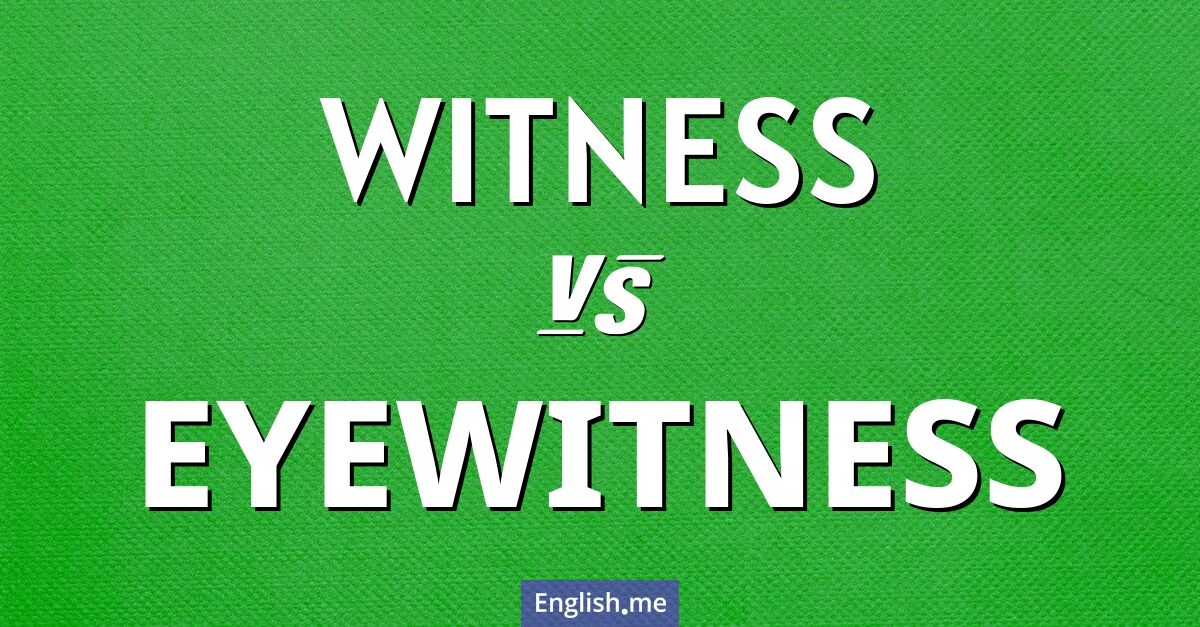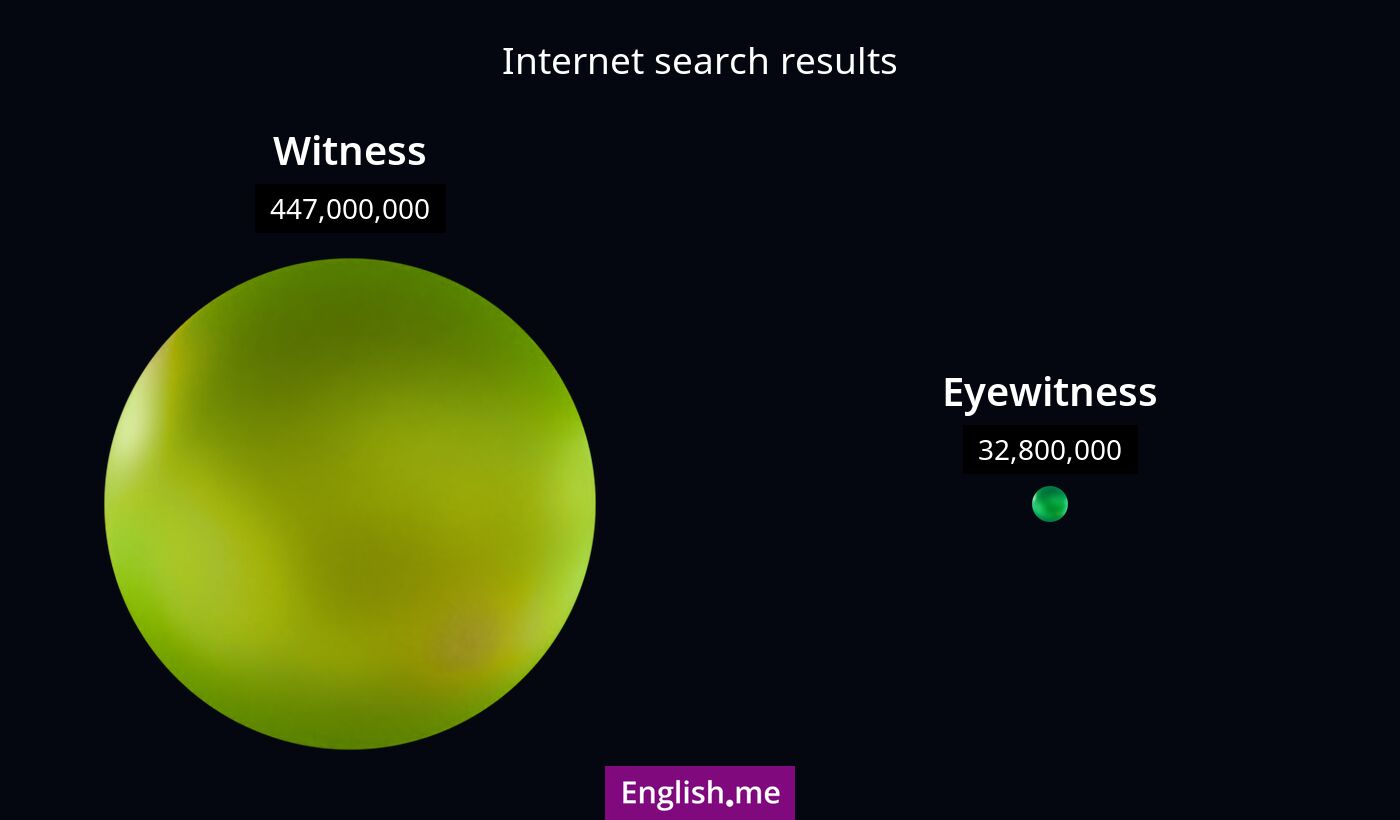Seeing the difference: "witness" vs. "eyewitness"
Reviewed and edited by  Anwar Kareem 10/10/2024, 14:23
Anwar Kareem 10/10/2024, 14:23
English.me team member

 What is similar?
What is similar?
Both "witness" and "eyewitness" refer to a person who has seen an event take place, typically an event of significance such as a crime or accident, and can provide an account or testimony of it.
 What is different?
What is different?
An "eyewitness" specifically refers to someone who has directly seen an event with their own eyes, often implying firsthand observation. "Witness" is a broader term that can refer to someone who observes an event or provides testimony about something, not necessarily from direct visual experience.
 Which one is more common?
Which one is more common?

 Examples of usage
Examples of usage
Witness- The lawyer called the witness to testify in court.
- She was a witness to the agreement between the companies.
- The detective interviewed the eyewitness who saw the accident.
- As an eyewitness to the robbery, he was asked to describe the culprit.

 English
English español
español française
française italiano
italiano deutsche
deutsche 日本語
日本語 polski
polski česky
česky svenska
svenska Türkçe
Türkçe Nederlands
Nederlands